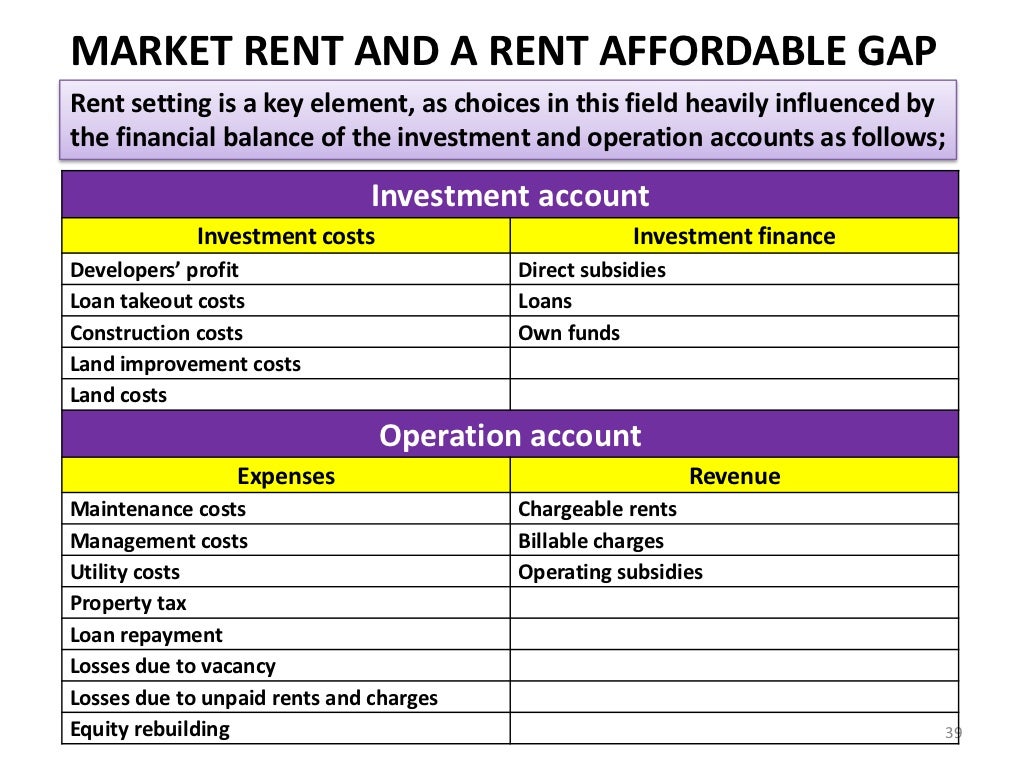Rental Market Sell-Off Fears Prompt Review Of Affordable Rent Policies

Table of Contents
The Current State of the Rental Market and Rising Concerns
The rental market is currently characterized by a perfect storm of unfavorable conditions. Soaring rents, persistently low vacancy rates, and intense competition are creating a challenging environment for renters. Rising interest rates are significantly impacting rental property investors, forcing them to reassess their investment strategies. The increased cost of borrowing makes holding onto rental properties less profitable, pushing many to consider selling. This potential exodus of rental properties from the market threatens to exacerbate the already strained housing supply.
- Rising mortgage rates are increasing borrowing costs for landlords, reducing profit margins.
- High inflation is impacting rental property profitability, leading to pressure to increase rents or sell.
- Increased demand for rental properties is outpacing supply in many areas, creating a highly competitive rental market.
- The potential for a significant decrease in available rental units could trigger a sharp increase in rents and widespread housing insecurity.
Data from various sources supports these concerns. For example, [cite a relevant source showing rising rents], while [cite a source showing declining rental vacancy rates]. These trends paint a worrying picture, highlighting the urgent need for action to protect renters and prevent a potential housing crisis. The consequences of inaction could be severe.
Potential Consequences of a Rental Market Sell-Off
A large-scale sell-off of rental properties could have devastating consequences. The most immediate impact would be a significant decrease in the rental housing supply, leading to further rent increases and increased competition among renters. This will disproportionately affect low- and moderate-income renters, many of whom already struggle to afford housing.
- Increased homelessness and housing insecurity, particularly among vulnerable populations.
- Strain on social services and support systems as demand for assistance increases.
- Negative impacts on economic growth and stability, as housing insecurity affects productivity and workforce participation.
- Increased competition among renters, driving up prices even further and creating a vicious cycle of affordability challenges.
The effects would extend beyond individual renters, impacting local economies and communities. Businesses might struggle to attract and retain employees, and community stability could be threatened.
Review and Adjustment of Affordable Rent Policies
Current affordable rent policies vary widely in their effectiveness. Many existing programs suffer from insufficient funding, limited reach, and complex application processes. To prevent a worsening housing crisis, a comprehensive review and adjustment of these policies are crucial. This includes:
- Increased funding for affordable housing initiatives, both public and private.
- Strengthening tenant protection laws to prevent unfair evictions and excessive rent increases.
- Incentivizing the construction of new affordable rental units through tax breaks and other incentives for developers.
- Expanding rent assistance programs to reach more low- and moderate-income families.
- Implementing stricter regulations on rent increases, potentially including rent control measures in specific areas.
Policy approaches should be multifaceted, combining direct rent subsidies with initiatives that increase the supply of affordable housing. This requires a collaborative effort involving government, private sector developers, and community organizations.
The Role of Government Intervention in Protecting Renters
Government intervention at all levels – local, regional, and national – is critical to mitigating the potential crisis. Effective policies can help stabilize the rental market, protect vulnerable renters, and prevent a large-scale sell-off. Successful interventions in other countries often involve a combination of strategies:
- Increased government funding for affordable housing initiatives, significantly expanding the supply of affordable units.
- Tax incentives for developers building affordable housing, making such projects financially viable.
- Legislation to protect renters from unfair evictions, providing greater security and stability.
- Regulations to control excessive rent increases, preventing landlords from exploiting market conditions.
Learning from successful examples elsewhere can inform the development of more effective affordable rent policies in our own communities.
Conclusion: Addressing Fears Surrounding Affordable Rent Policies
The current state of the rental market, characterized by rising rents and the potential for a significant sell-off of rental properties, demands immediate attention. The potential consequences for low- and moderate-income renters are severe, potentially leading to increased homelessness and housing insecurity. A comprehensive review and adjustment of affordable rent policies are essential to mitigate these risks. This requires increased funding for affordable housing, stronger tenant protections, and innovative policy approaches that increase the supply of affordable rental units.
Advocate for stronger affordable rent policies in your community. Demand better protection for renters and contact your elected officials to express your concerns. Learn more about affordable housing initiatives in your area and join the fight for affordable housing. The future of housing affordability depends on it.

Featured Posts
-
 Will Jennifer Lopez Host The 2025 American Music Awards
May 28, 2025
Will Jennifer Lopez Host The 2025 American Music Awards
May 28, 2025 -
 Samsung Galaxy S25 Ultra 256 Go Test Et Avis Complet
May 28, 2025
Samsung Galaxy S25 Ultra 256 Go Test Et Avis Complet
May 28, 2025 -
 Red Carpet Ready Hailee Steinfelds Sinner Mexico Look
May 28, 2025
Red Carpet Ready Hailee Steinfelds Sinner Mexico Look
May 28, 2025 -
 One Pieces Most Brutal Pirate Crews Their Crimes And Conquests
May 28, 2025
One Pieces Most Brutal Pirate Crews Their Crimes And Conquests
May 28, 2025 -
 Ria Ricis Dan Moana 7 Aktivitas Seru Liburan Lebaran Di Bali Dan Sumba
May 28, 2025
Ria Ricis Dan Moana 7 Aktivitas Seru Liburan Lebaran Di Bali Dan Sumba
May 28, 2025
